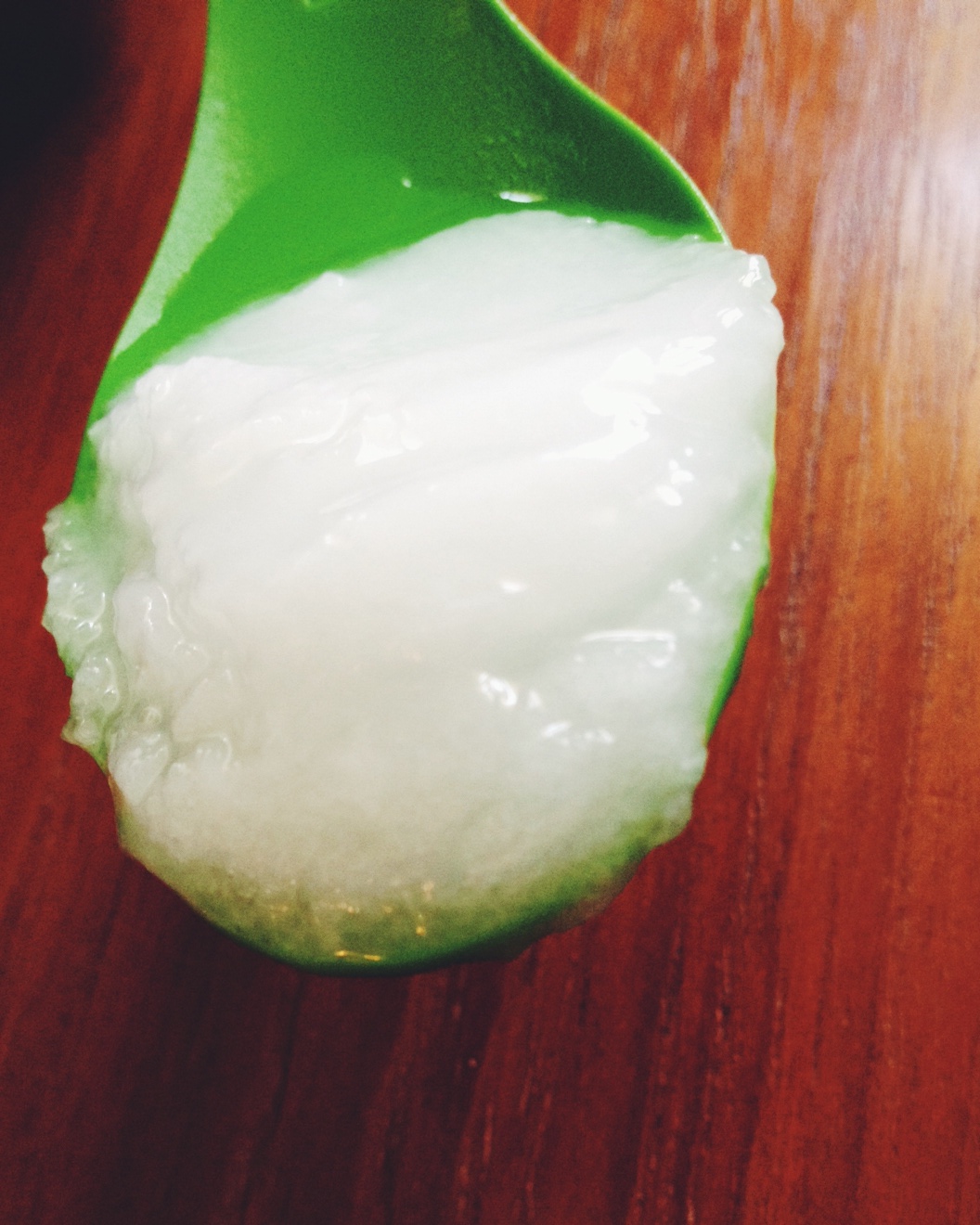It’s always a bonus to find something decadent-tasting that’s actually good for you. Take coconut oil, a product I’ve become a fan of in the last few months. With a buttery flavour that lends itself especially well to smoothies and baking (not to mention hair conditioning), this plant-derived oil can help your digestive system in a number of ways.

People with stomach problems are often told to stay away from high-fat foods, partly because long-chain fatty acids are hard to break down. While coconut oil is indeed a high-fat food (14 grams of fat per tablespoon, 13 of them saturated), it contains mainly medium-chain fatty acids, which don’t cause strain on the system because they don’t require pancreatic enzymes or bile from the liver for digestion.
After months of consuming coconut oil on a regular basis, I can tell you it hasn’t made me feel bloated or overly full the way many high-fat foods can. Praised by nutritionists (and Dr. Oz!), here are some of its key digestion-related benefits:
Prevents invasion of bad bacteria
The combination of fatty acids in coconut oil, including lauric, caprylic and capric acids, give it anti-microbial and anti-fungal properties. These properties make it a good weapon for staving off parasites, bad bacteria and yeast (candida) that like to make their home in the intestines and mess with our digestive systems.
- B.C. to ban drug use in all public places in major overhaul of decriminalization
- 3 women diagnosed with HIV after ‘vampire facials’ at unlicensed U.S. spa
- Solar eclipse eye damage: More than 160 cases reported in Ontario, Quebec
- ‘Super lice’ are becoming more resistant to chemical shampoos. What to use instead
Soothes inflammation
Coconut oil is said to be an effective way to calm symptoms of inflammatory bowel diseases like Crohn’s (Dr. Ben Kim recently wrote on this topic). The medium-chain fats can have a soothing effect on inflamed intestinal tracts and, as covered in the previous point, keep away bad microorganisms that often trigger further inflammation.
Helps control sugar cravings
Sugar cravings are hard to conquer – especially afternoon ones – but coconut oil provides a satisfying fix because it’s a high-quality fat that rapidly converts into energy. A spoonful may help you resist something you know will have not-so-great gut consequences (I’m looking at you, doughnuts).
An important note: As nutritionist Margaret Floyd points out in her book Eat Naked, “The nutritional value of a quality fat is superior to a low-quality, refined, or modified version.” Choose organic, unrefined virgin coconut oil if you can. Once you start using it, you’ll probably find it easy to add to things you already eat. Here’s how I like to include coconut oil in my diet:
– Blended into smoothies (I usually add a tablespoon)
– Combined with nut butter as a dip for bananas or apple slices
– Used as an ingredient in homemade granola and muffins
– Mixed into warm oatmeal
– Stirred into green tea
– Sauteed with vegetables (it withstands higher cooking temperatures better than many other oils)
Over to you: Have you tried coconut oil and noticed any health benefits?
Always consult your physician before starting a new diet or exercise program.




Comments